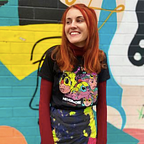Dear Internet: Let’s Stop Comparing Solange To Beyoncé
The sisters aren’t the first artists to explore black feminism — but Solange’s new album is a breathtaking breakthrough.
Solange Knowles dropped her third studio album “A Seat at the Table” on Sept. 30. The record was met with a ton of positive responses from both fans and critics, who praised it for exploring different sounds and tempos to incorporate the pain, joy and triumph of being a black woman in America.
However, many also pointed out that the album seems very on par with Beyoncé’s album, “Lemonade,” which was released in April. Some even called “A Seat at the Table” a “companion piece” to Solange’s big sister’s politically-charged album, citing similar themes: race, gender and embracing one’s cultural heritage.
It’s interesting that after years of being her own artist, fashion icon and now, releasing this critically-praised album, Solange still lives in Beyoncé’s shadow. Sure, there are similarities between the two albums—both are topical reflections of the black spirit that has both endured pain and radiated joy. But Beyoncé certainly was not the first artist to make a statement on black feminism—artists like Aretha Franklin and India.Arie have been doing this for years. Yet we continue to associate Solange with Beyoncé, and by doing so, we take away her voice as an artist and minimize the things she has to say—which, in the current social climate, are more important for us to hear than ever before.
Solange recently addressed the comparisons between her and Beyoncé, telling The Fader:
We have the same mother and the same father. We grew up in the same household, and so we had and heard the same conversations…these very politically-charged, socially-charged conversations.
It shouldn’t be surprising that two people who grew up in the same household with the same parents who are very, very aware — just like everyone else is — of all of the inequalities and the pain and suffering of our people right now, would create art that reflects that.
Solange is absolutely right. Musicians draw from personal experiences, and we shouldn’t silence her voice just because her big sister elevated the conversation with “Lemonade.” The sisters might be telling the same narrative, but they’re choosing different words and musical styles to express their own individual stories.
Although Beyoncé draws heavily on R&B and hip-hop influences, she is also a pop artist and has more mainstream appeal. On “Lemonade,” Beyoncé did something different, embracing full transparency with regard to her rocky marriage, while also loading the album with political and social commentary.
Solange’s album, on the other hand, isn’t meant for everyone, and that’s not a bad thing. The edgy R&B vibe is introspective and soulful. At times, the album pushes societal boundaries, evoking visceral discomfort. Solange warns us not to touch her hair or exploit her heritage—but she also encourages her listeners to search for peace in their weary minds, and to discover truth.
You can’t compare Solange’s and Beyoncé’s narratives because both stories deserve to be told. Implying otherwise would be like saying Taylor Swift and Katy Perry can’t write their own songs about John Mayer breaking each of their hearts. Each are different perspectives we want to hear, just as we should want to hear Solange’s and Beyoncé’s distinct voices. One album doesn’t have to be “better” or outshine the other.
So let’s let Solange be her own artist and have her moment with “A Seat at the Table.” Hell, let’s give her an endless succession of moments. I mean, have you seen how beautiful the visuals are in her two newly-released music videos? Girl has just given us the gift of her art, and it’s breathtaking.
